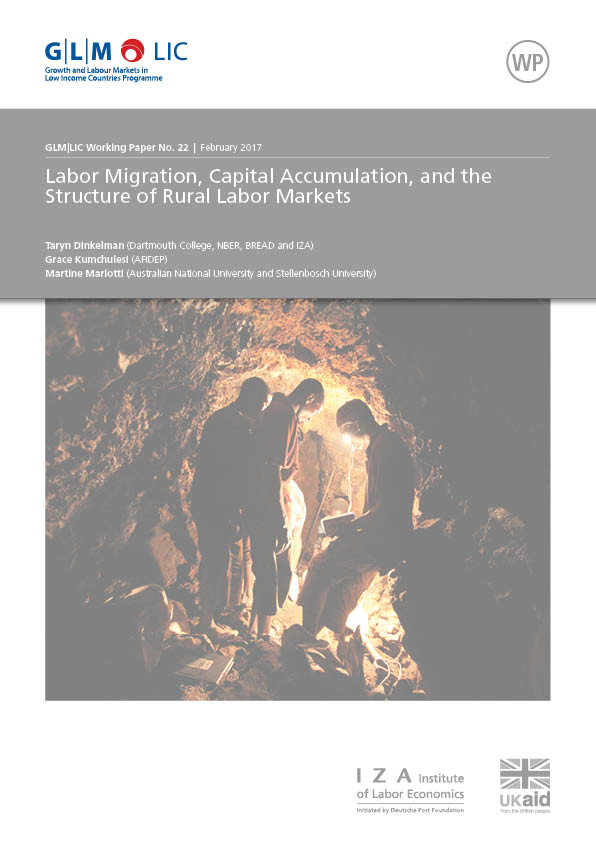Can migrant capital be a force for structural change in labor markets of sending communities? We address this question by studying how rural labor markets in Malawi changed in the three decades following exogenous shocks to labor migration to the South African gold mines in the1960s and 1970s. We assemble several waves of population census data and digitize archival data on remittances at sub-national level to track how employment patterns changed across districts receiving different inflows of migrant earnings. Districts receiving more migrant capital due to the time profile of migration saw employment diversify away from agriculture and into the more capital-intensive non-farm service sector. Districts receiving greater migrant capital also accumulated more non-farm physical capital and human capital over the long run. We calculate that the inflow of migrant money accounted for between 5% (for men) and 17% (for women) of the total structural reallocation of employment away from agriculture over thirty years.
